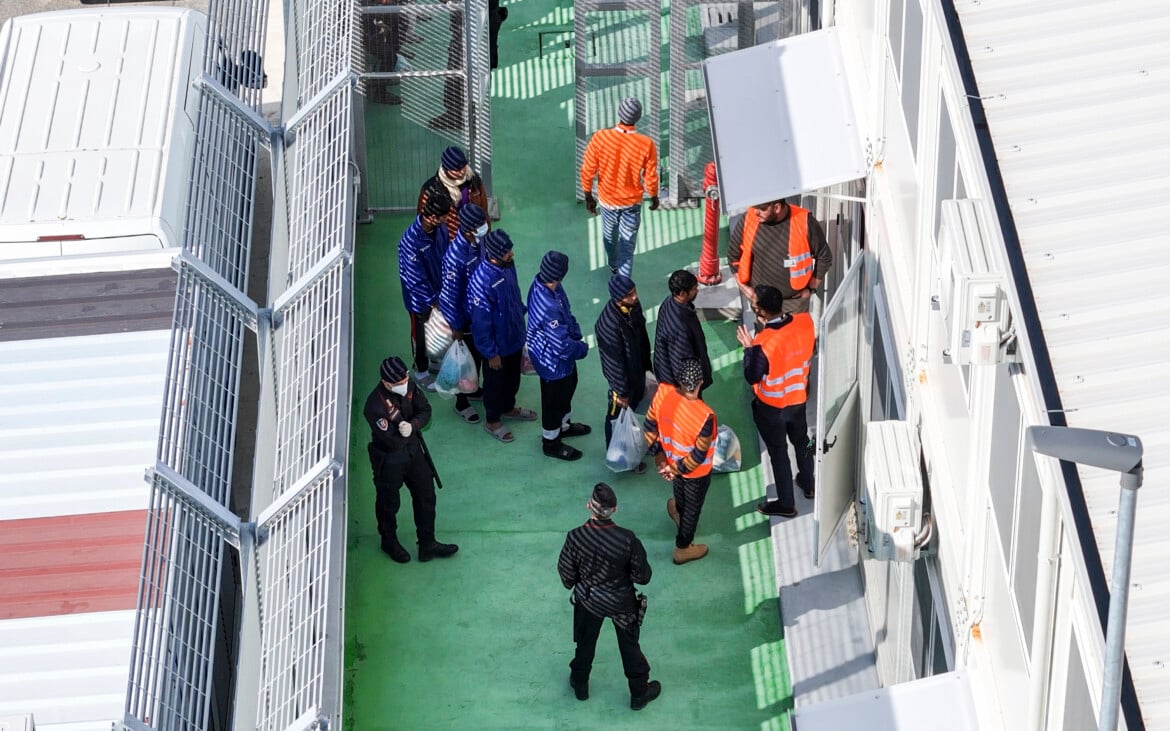Analysis
EU Commission ‘safe countries’ briefs imperil Meloni’s refugee offshoring plan
EU law rules out the “safe country” designation if there are exceptions for categories of people. This is a very different position from that of the Meloni government, which in May 2024 added countries such as Egypt or Bangladesh to the list of “safe” ones.

In addition to the two referrals that started the case, fifteen briefs have been filed with the Court of Justice of the European Union in the “safe countries of origin” case which will be heard in a week's time in Luxembourg. Among these briefs, of particular importance is the EU Commission's argument that EU law rules out the “safe country” designation if there are exceptions for categories of people. Their reasoning is that a distinction must be made between persecutions or violations against individuals and situations where these have a systemic character and affect entire groups of people. In the second case, the Commission argues, the classification as a safe country is contrary to the directive.
This is a very different position from that of the Meloni government, which in May 2024 added countries such as Egypt or Bangladesh to the list of “safe” ones. From the data sheets attached to the inter-ministerial decree, later replaced by a law, we see that the exclusions by categories of people are far from insignificant. For Cairo, these cover: political opponents, dissidents, activists and human rights defenders. For Dhaka: the LGBTQI+ community, victims of gender-based violence, ethnic and religious minorities, those accused of political crimes and those sentenced to death.
The truth is that the government put those countries on the list for political reasons: they were the top two countries of origin for migrant landings, and it needed to start the Albania project. Before the court, however, it will have to justify its decision with legal arguments. Among the countries that have filed briefs are Hungary, Poland, Slovakia, the Czech Republic, Cyprus, Malta and Greece. Given their positions on immigration, it’s likely that their view is mostly in line with Italy. France is also in favor of the possibility of deeming states “safe” even if there are exceptions for categories of people, but Germany has the opposite view, and it is far removed from Rome’s views on the other three questions to be adjudicated as well.
Meanwhile, on Monday, EU Home Affairs Commissioner Magnus Brunner, an Austrian from the People's Party, responded to a question from ANSA on the Italy-Albania protocol as follows: “We have to work together to find solutions that work in practice, and I am now working on creating a legal framework to support the 27 in carrying out repatriations effectively, so we are in full agreement on this goal.”
The statement appeared to show full support for the centers across the Adriatic, but his words are more evasive than they seem at first glance, and the reference is also not unambiguous. By mentioning the new rules on returns, Brunner seems to hint at the directive the Commission will present in mid-March. This will be useful for the Albanian project only in case those facilities will no longer deal with expedited asylum procedures and will be turned into CPRs, holding only irregular migrants to be repatriated. In that case, they would become the first hub for repatriations located in a third country; however, this is not possible under current EU legislation.
Perhaps this is also why the government decree that was supposed to enshrine this transformation vanished into thin air. The operation is not as simple as some in the majority claimed last week and, assuming it does go through, would require some forcing of the legal framework.
Giorgia Meloni, who was set to meet Brunner on Tuesday afternoon, who is a guest at the Conference of Prefects and Quaestors of Italy, spoke about these issues once again on Monday. The premier stressed the need to revise the 2008 Return Directive and bring forward the entry into force of some points of the EU Pact on Immigration and Asylum. She went so far as to argue that the prevalence of EU law over Italian law, a fundamental pillar of the construction of the Union, “appears fragile” – invoking as supposed evidence Germany's repatriations to Afghanistan unopposed by the courts. But this is yet another bluff: expedited border procedures being done in Albania are one thing, repatriations are another.
The definition of “safe country of origin” affects the type of procedure: the expedited one allows for detention, but not for the possibility of forcibly repatriating those who have not been granted international protection. Meloni, however, mixed up the two scenarios in her warning to the Luxembourg judges: “The hope is that the EU Court of Justice will avert the risk of undermining the return policies, not only of Italy but of all EU member states.”
This is a sign of weakness; perhaps she has an inkling that things may not go as she hopes before the Court.
Originally published at https://ilmanifesto.it/migranti-la-commissione-da-torto-allitalia on 2025-02-18
